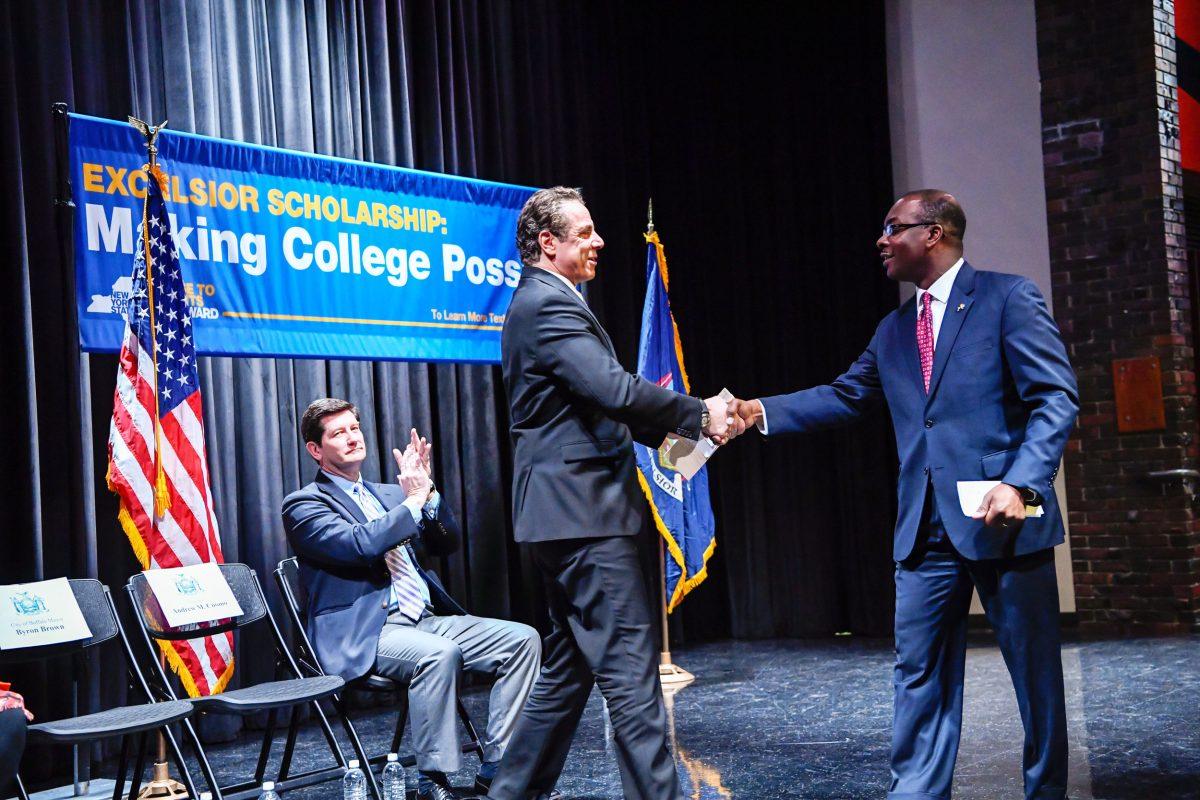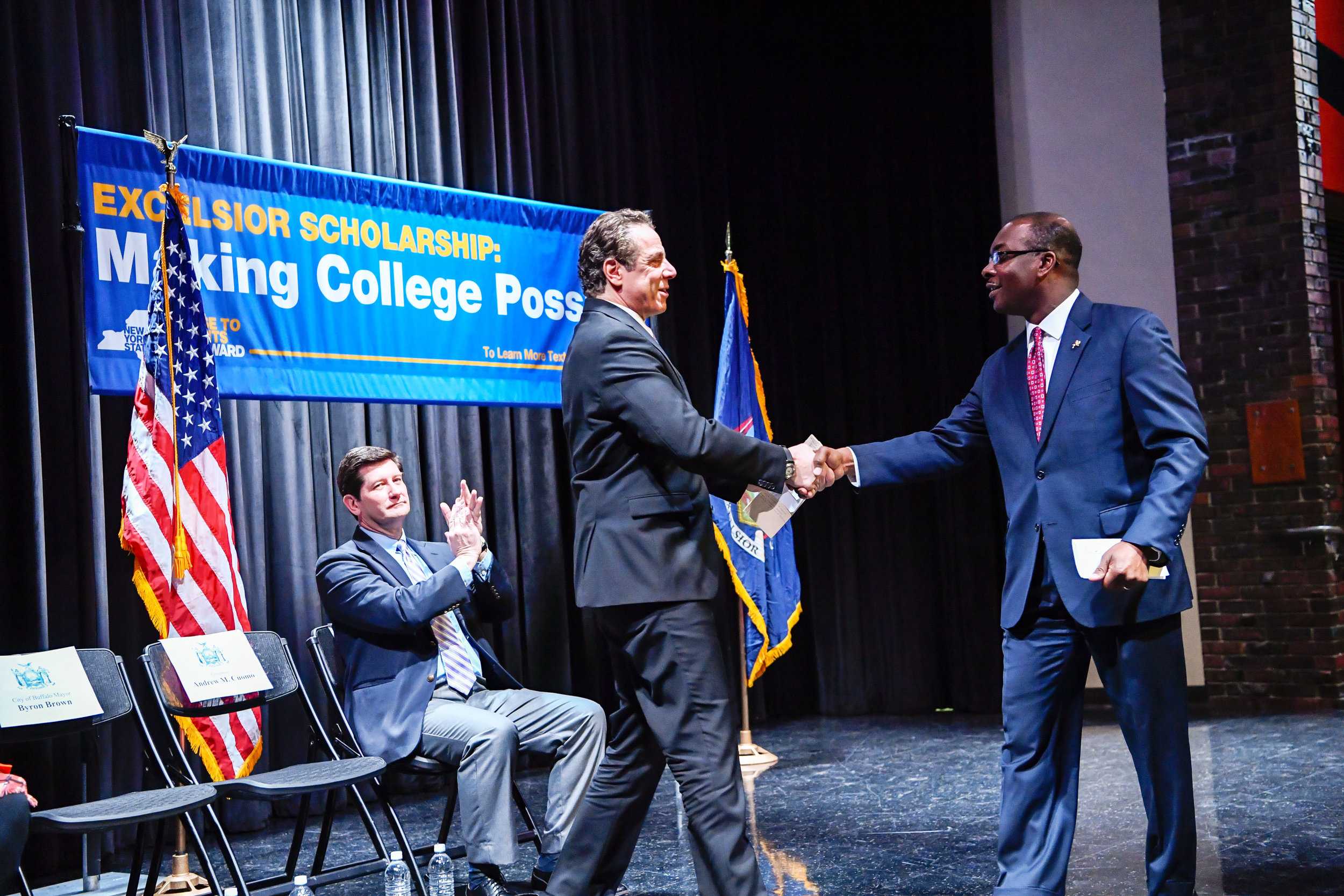The eyes of many college students have been on New York in recent weeks as the state launches the Excelsior Scholarship, a program that fully covers the cost of college education for residents or families. The Excelsior scholarship works very similarly to many community college programs, covering the tuition of full-time students who are also New York residents.
“We’re providing the opportunity for New Yorkers to succeed, no matter what zip code they come from and without the anchor of student debt weighing them down,” New York Gov. Andrew M. Cuomo said at a press conference. “New York is making a major investment in our greatest asset – our people – and supporting the dreams and ambitions of those who want a better life and are willing to work hard for it.”
Politicians and citizens met The Excelsior scholarship with both celebration and criticism. The program heavily encourages students to stay in New York for at least two years by converting the waived fees to a loan if students leave the state too early. Students must stay in the state for the same amount of time they use the scholarship; two years for an associate’s degree and four years for a bachelor’s.
The program has drawn mixed reactions among students at Sonoma State University.
“Free tuition would be great,” said Katie Jacobs-Romero, a junior communications major at Sonoma State, “but when I graduate I wouldn’t want to be limited to staying in California.”
Similarities are often drawn between New York and California, education policy being one of them. In February, City College of San Francisco officials announced that the college will be free of charge to all city residents under a deal arranged by Mayor Ed Lee and San Francisco Supervisor Jane Kim. Under the deal, which will take effect in the fall, the city will put up $5.4 million a year to replace the $46-a-credit fee traditionally paid by students who are residents. In addition, there is a legislative package proposed by democrats in the State Assembly to erase the need for student loans.
“Degrees Not Debt” is a scholarship proposal that would fill the gap between the full cost of education and what Cal State and University of California students are capable of paying, taking each student’s individual and family contributions into consideration.
The legislation would make community colleges tuition free for one year for any full-time in-state student in California while preserving the Middle Class Scholarship that now covers up to 40 percent of tuition for roughly 55,000 lower and middle-income students in the state and would create others scholarships to help students pay for non-tuition related costs associated with attending UC and CSU colleges including Sonoma State. But the package of bills comes at a cost.
The total cost of the Degrees Not Debt scholarships would add $1.6 billion to the state budget.
“That would save me a lot of money, but $1.6 billion is a huge number,” Jacobs-Romero said. “And if that’s only based on the students that are currently enrolled, imagine how much the cost would go up when more people are incentivised to enroll.”
Sonoma State Chair of Economics Mike Visser advises caution about free tuition.
“Having to earn your education may make it more likely that the student takes it seriously and this may, in turn, improve student success,” he said. “It seems likely that free tuition would attract at least some people who have a nominal value for higher education and might decide to choose college when they otherwise would not have. Then the state is spending resources on students who are probably not likely to succeed.”
In terms of free tuition here in California, Visser was skeptical of it becoming a reality.
“There does not appear to be much appetite among California lawmakers and Gov. Brown to increase state pending on higher education,” he said.
“In general fiscal responsibility is good policy,” Visser said. “However, the state has been reducing its investment in higher education for a very long time, and this shifts the burden onto students via tuition increases.”





![[Both photos courtesy of sonoma.edu]
Ming-Ting Mike Lee stepped in as the new SSU president following Sakakis resignation in July 2022](https://sonomastatestar.com/wp-content/uploads/2024/04/CC4520AB-22A7-41B2-9F6F-2A2D5F76A28C-1200x1200.jpeg)



























